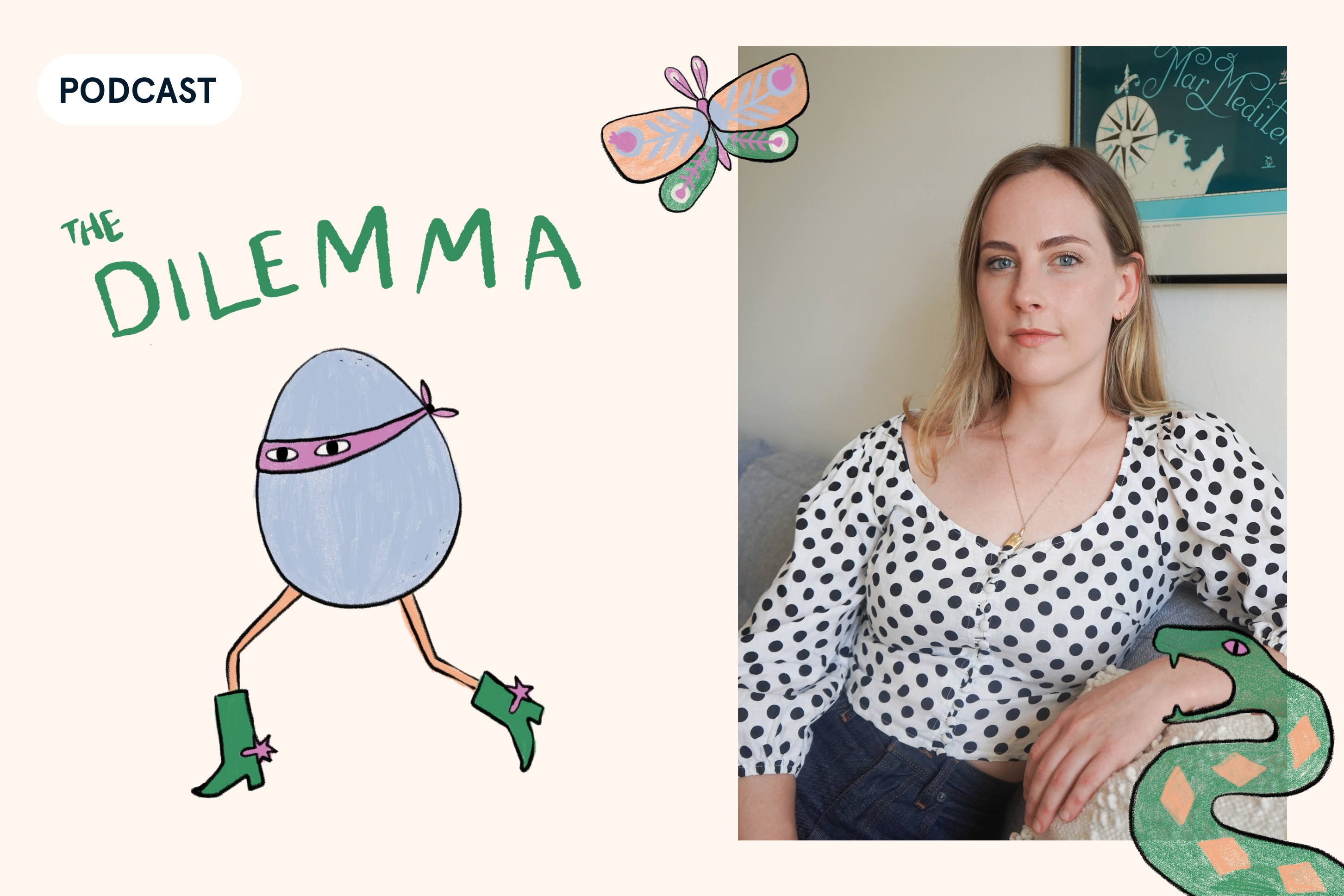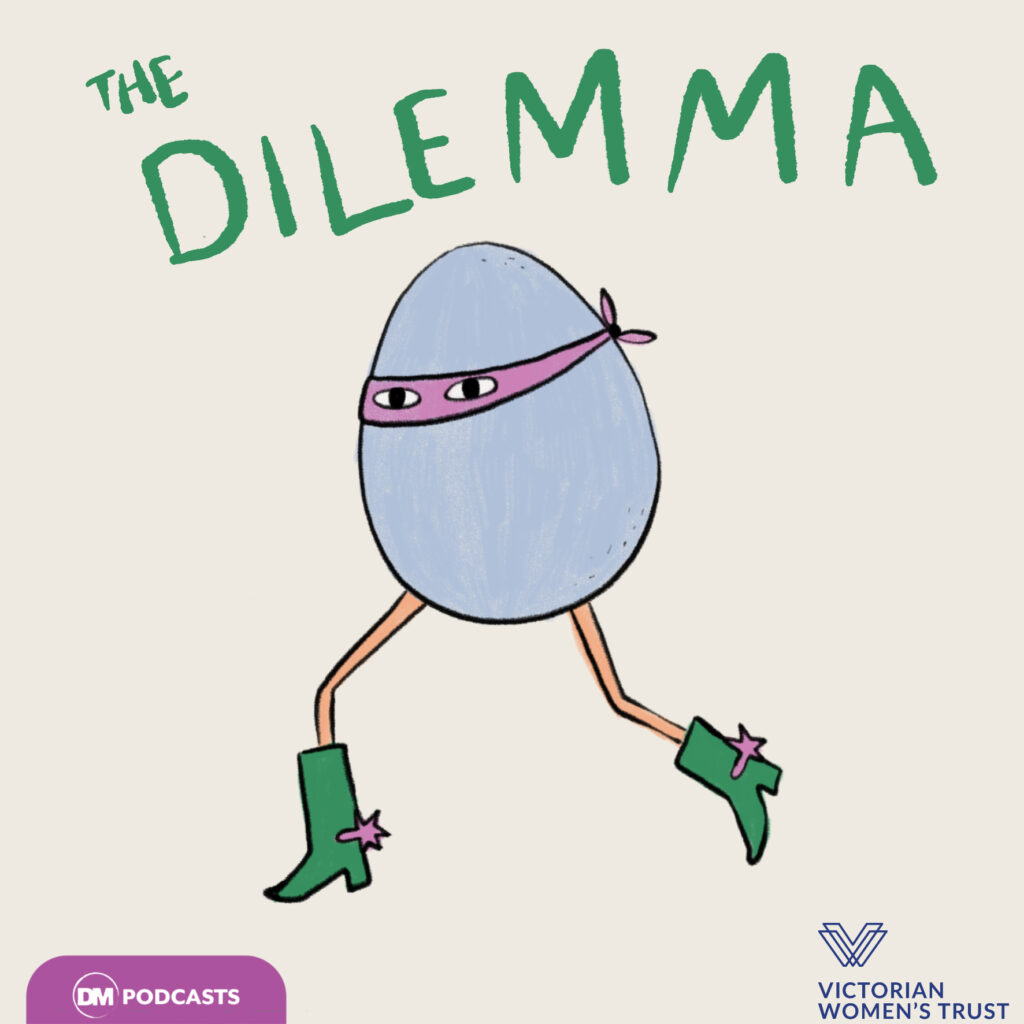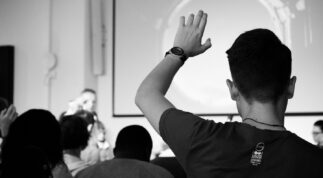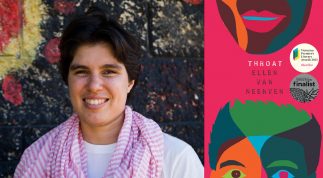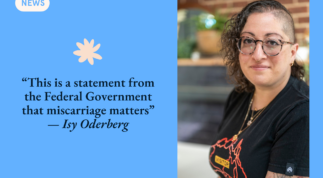“We too felt like apocalypse was around the corner,” Barbara, 71, tells me.
As predictions about the climate grow more alarming she believes children absorb their parents’ ambient dread just as she did during the Cuban Missile Crisis when she would lie awake in bed next to her sister, both stiff with anxiety. “I can see people are still treating hope like a jinx, some kind of hot potato they don’t know how to handle,” she says. “People were still having babies through a nuclear war, but I think there was that same dissociation from the future.” To Barbara, inaction was the inevitable choice in the face of existential threat – “it wasn’t like I could have a say in the war”– but she believes the opposite is now true. “We were waiting for the bomb – the big bad bang that would end it all,” she says. “Powerlessness can be useful in that way, you know? What else is there to do but live, to make babies, to fall in love, to build a life and get on with it? I think what’s different now is we all feel part of so many problems and part of the solution. That’s a little trickier.”
Months before the coronavirus outbreak reached Australia, in the summer of 2019, we were already acclimatising to a kind of dystopia in which face masks were selling out as people rushed to protect their lungs from the smoke billowing through much of the country. Fire and emergency chiefs agreed that the bushfire season, during which blazes burned through 24.3 million hectares, killing people and destroying homes, was made longer and deadlier by climate change.
At the time I interviewed an obstetrician delivering babies into smoky maternity wards. He said decades ago the anticipation of his pregnant patients was an uncomplicated joy but these days the excitement was polluted with anxiety about the world they were bringing a child into. Air pollutants have been linked to premature birth and miscarriage in the first trimester. A few months later another doctor described the placentas of women pregnant during that bushfire season. They were not healthy and pink, falling away easily during birth, she told me, but grey and grainy “like a pack-a-day smoker” needing to be removed with an operation. The placenta, the guardian organ, and the embryo’s first line of defence was compromised — the world had entered the womb. In the wake of what we now call the Black Summer I began writing a book about the decision of whether or not to become a parent.
People older than me understood that global fertility rates were collapsing and that those who were having children were waiting until later in life to do so but unlike Barbara they responded to the book’s central question with polite irritation. There were dismissive grandmothers: Well, we didn’t have a choice and their defensive baby boomer children: Well, we were made to feel as though we had no choice and men who refused to believe this could be a line of political or philosophical inquiry: So it’s a memoir? Why do you need to research anything? But what annoyed my elders most was the idea that answering this question warranted an entire book. They seemed to believe the answer came before the question — you just know — and this desire for children appears, unbidden and then unwavering and, importantly, untethered to any ecological or financial reality. You either want them or you don’t. To them the indecision itself was indulgent, unnecessary, dramatic, even performative.
Meanwhile, so many people my age vacillate between not wanting children at all and wanting children but not knowing whether they could or should have them. Journalist Michael Hobbes writes that the touchstone experience of millennials is this: uncertainty. As individuals, he argues, we’re not remarkably different from people in years past but the world around us is as millions of people become unmoored from the prerequisites of stability — secure employment or protected social safety nets, free or affordable education or wages that grow in line with inflation. “Not only are we screwed, but we have to listen to lectures about our laziness and our participation trophies from the people who screwed us,” Hobbes writes. A Forbes magazine headline declares: “A decades-long broken economy screwed over millennials, and their decision to delay having kids is fuelling America’s historically low birth rates”. A less generous Grazia one reads: “Why Can’t Millennials Make Any Damn Decisions?”
The question of children thrusts us into a time beyond now, demanding we come up with more than whatever gets us through the present while the only assurance we’ve had about what lies ahead is that it will be worse. Millennials are challenging parenthood as a default and those of us with uteruses are freeing ourselves from the outdated notion that our organs grant us an obligation or biological aptitude for caregiving. In this terrifying freedom — still of course subjected to the constraints of fate and fertility — we understand parenthood as more of a choice than it ever has been. Everyone my age I spoke to about the book instantly understood why there would be a chapter on climate change, on labor, on reproductive rights, on legacy. Everything suddenly feels relevant to the question of parenthood.
And so my producer Kara and I have created a podcast, The Dilemma, with the support of the Victoria Women’s Trust, to continue this conversation and explore these questions with an insightful collection of experts — philosophers, psychologists, fertility specialists, feminist icons and political writers. Our podcast is in defence of dithering, of mulling, of pestering people who might know more than you do.
To have a child feels like a leap of faith in yourself as you are and this awful, beautiful world as it will be, or an act of faith in our ability as parents and children to survive transience. We are a collection of people living through the positive and negative consequences of actions taken by those in decades past. Of course that describes every generation, but perhaps we’re armed with an emotional literacy many of our predecessors did not have the latitude to develop before they were parents, or at all.
My mother had a single ultrasound across four pregnancies. It feels as though we now scan ourselves for complications before we even know if we want to be parents. I find in myself and in others a fear about what children will inherit, not just in the earth where we plant them in but in their roots; a contemporary consciousness of how harm moves through generations. It is there in the climate anxiety but also in a sense of which parts of our histories we want to rhyme and which we want to rewrite. It is not just that secretly drafted but rarely voiced curriculum vitae for the role of “parent”—it is a risk appraisal. It is a need to stop the past from living in the present, from living in the future. It is a fear of causing harm.
Maybe too many of us have lived in the wake of procreation out of obligation or maybe we’re over-therapised and we’ve read too many books about intergenerational trauma but we are all playing clairvoyant, psychoanalyst, weatherperson, theorising about how our genetics, our childhoods and our culture might live on in a child. Maybe I’m romanticising a compulsion to control outcomes as altruism and we will in fact raise a new generation of cautious neurotics but to me the dithering feels like a natural response to generations past who didn’t hesitate. Of course in many of my interviews I found people who just didn’t want to become parents for straightforward reasons but many were insistent they didn’t want to commit to it unless they thought they’d be a good parent. They were thinking deeply about what their hypothetical children deserved. “Millennials are lazy, entitled narcissists who still live with their parents,” reads a 2013 TIME cover, followed by the line: “why they’ll save us all.”
As I sat watching television recently I found myself wondering why I was feeling emotional watching this awful man opine on the heedless momentum of capitalism. In the final season of HBO’s Succession Kendall Roy makes an impromptu eulogy at his father Logan Roy’s funeral. It is an ode to the billionaire’s “magnificent, terrible force” that drove him to build a media empire as much as it is a grotesque endorsement of private enterprise itself — “the ambition to own, and make, and trade, and profit, and build and improve”. By this stage in the series we had spent hours with this vile family, richer than god, as they lied, manipulated, backstabbed and blindsided each other with cruel indifference. But as I watched this chinless narcissist describe his father’s confident wealth-building on the backs of others, a quest for power and control that ultimately harms every character we encounter, I felt something of the late “brute” I can only describe as envy. “There are always a thousand reasons not to… to not act,” Kendall told the mourners. “But he was never one of those.” He described a person “comfortable with the world”, possessed of a total conviction in what they were doing – someone who had not once paused to make an ethical consideration.
My ugly jealousy wasn’t about the blinkered self-interest or even the unbelievable wealth, (though I’d take their penthouse apartments). I wanted to be propelled by a certainty so potent that my decisions felt right even if they weren’t. Later that night I read an article about ethical sex during a climate crisis. Logan Roy never knew which of his personal lubricants contained fossil fuels. Logan Roy didn’t know what it was to dither.
In Lillian Fishman’s novel Acts of Service the protagonist Eve reflects that, like many middle class twenty-somethings, she had been raised without religion but was no longer living in a world where it was “defensible to build a life around acquiring money, goods or status”. “We were encouraged to care deeply about the state of our world but our ability to affect it personally was very much in doubt,” she says. “Most of all we found ourselves believing in complexity.” Eve acknowledges that a modern faith in ambiguity might have shepherded people away from “extreme states of dogma and ignorance” but it also justified a lack of action. “Looking around at the moral compromises baked into every choice, it sometimes seemed as though inertia was the least objectionable course.”
I am a member of a generation that often feels impotent in the face of endless precariousness. Who cares if we’re having children later or choosing not to have them at all? Who can blame us? But I don’t want to hesitate simply because it is the least objectionable thing to do. I’m not sure that we will ultimately be defined as a generation of hand wringers or people more concerned with appearing to do no harm than actually turning the tides of destruction we’ve inherited. We are already influencing elections and demanding more from our political and business elite. We are already expecting more from our relationships and from ourselves. Inertia, with or without children, is not sustainable — nor is the world as we know it. In this podcast we try to move — we move from questions to better questions and in some cases, hopefully, we move towards answers.
The Dilemma is a new podcast by journalist Gina Rushton, exploring one of life’s most pressing question: Should I become a parent? Proudly supported by the Victorian Women’s Trust.
Episode one debuts Tuesday 25 June. Listen wherever you get your podcasts.
Host: Gina Rushton Executive producer: Kara Jensen-Mackinnon
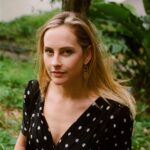 Gina Rushton is an author, journalist and podcaster who has written for BuzzFeed News, The Guardian, The Monthly, The Saturday Paper, Crikey, and The Australian. She is a Royal Australian and New Zealand College of Obstetricians and Gynaecologists media excellence award winner and Australian Human Rights Commission media award finalist for her coverage of reproductive rights.
Gina Rushton is an author, journalist and podcaster who has written for BuzzFeed News, The Guardian, The Monthly, The Saturday Paper, Crikey, and The Australian. She is a Royal Australian and New Zealand College of Obstetricians and Gynaecologists media excellence award winner and Australian Human Rights Commission media award finalist for her coverage of reproductive rights.
